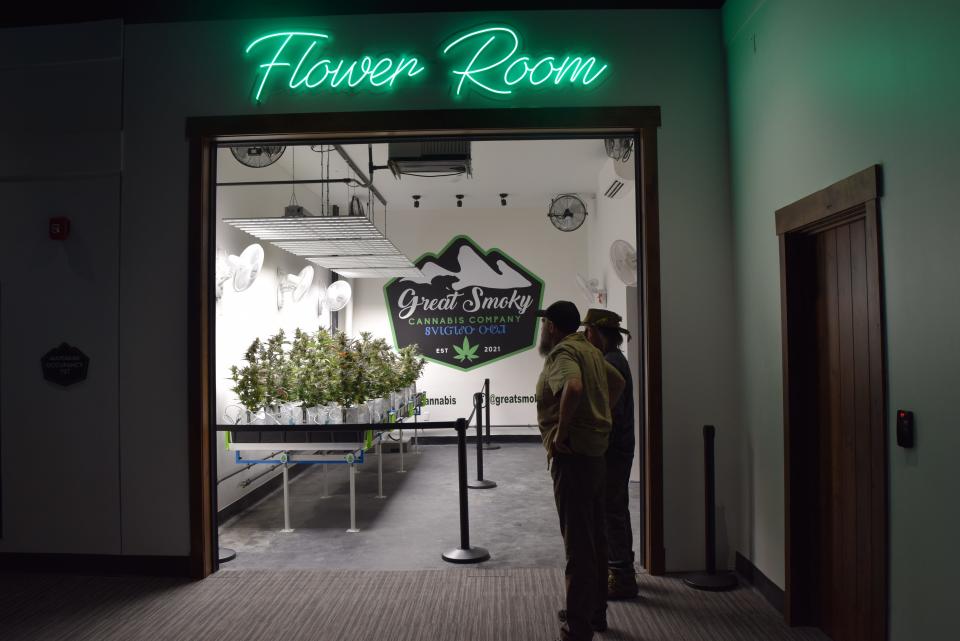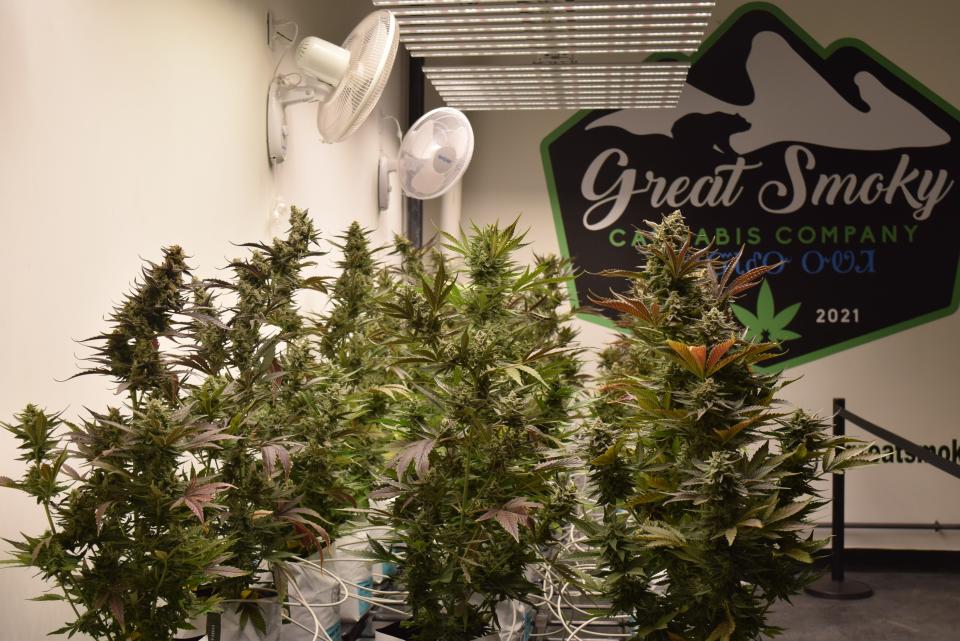Biden administration plans to reclassify marijuana. What does that mean for North Carolina?
The Biden administration may change the federal government's position on marijuana, according to reports about a plan that would recognize the medical use of cannabis.
The Drug Enforcement Administration will propose that marijuana be recategorized under the Controlled Substances Act, according to reporting by the Associated Press and NBC News. The outlets cite anonymous sources with knowledge of the plans.
The plan would not legalize marijuana, but it would reclassify it from a Schedule I drug — believed highly dangerous, addictive and without medical use — to a Schedule III drug that can be lawfully prescribed as medication.
The historic shift in American drug policy could have implications across the country, including in North Carolina, one of just 12 states that have not legalized cannabis for recreational or medical use.
Here's a look at what the DEA plan could mean for the legalization of marijuana in North Carolina.

What would the federal reclassification of marijuana mean for North Carolina residents?
If the DEA recategorizes marijuana, it would have no effect on the legal standing of marijuana in North Carolina, said Phil Dixon, a professor at the University of North Carolina School of Government.
"This doesn't change much of the situation on the ground,” he said Wednesday. “This has no impact on our own state criminal law.”
Marijuana is illegal in the Tar Heel State. Lawmakers would have to pass a bill to legalize the drug and Gov. Roy Cooper would have to sign the bill into law to change that, Dixon said. Or, if the governor does not sign the bill, both chambers would have to override the veto with a three-fifths majority vote.
More on the historic move: Biden administration plans to drastically change federal rules on marijuana, reports say
Federal reclassification of the drug, however, would loosen restrictions on the research of marijuana and medicine derived from marijuana, Dixon said. It could lead to more marijuana studies done on college campuses and at private pharmaceutical firms, he said.
How soon could marijuana dispensaries open in North Carolina?
When North Carolinians can expect to see marijuana dispensaries on state land depends on when the state legalizes the drug, Dixon said.
While the federal reclassification may lead to some momentum for marijuana legalization advocates, the administrative move alone does not necessarily mean that North Carolina residents will be able to shop at dispensaries any sooner, he said.
“It’s not going to lead to dispensaries because it doesn’t authorize medical nor recreational marijuana,” he said.

Could military cannabis regulations loosen?
Dixon said that although military installations are on federal land, the armed forces make their own rules. Federal reclassification of marijuana would not affect whether military personnel can use it, he said.
Can weed be purchased in North Carolina?
Marijuana can be purchased at one dispensary in the mountains of western North Carolina.
The first cannabis dispensary in the state opened April 20 in Cherokee. The 10,000-square-foot facility is on Eastern Band of Cherokee Indians land, where medical marijuana is legal under tribal law.
Meanwhile in the mountains: North Carolina's 1st dispensary opens on 4/20, but only for medical cannabis
Great Smoky Cannabis Company can only sell to people with medical marijuana cards issued by the EBCI, other tribal bodies or another state.
While any North Carolina resident with a medical marijuana card can shop at the dispensary, people who are not members of the EBCI could be arrested under state law by non-tribal authorities on EBCI territory, Dixon said. And because marijuana remains illegal in North Carolina, anyone in possession of marijuana outside of EBCI territory could be arrested. Marijuana possession can result in misdemeanor and felony charges with up to $500 fines, a year in jail, or both.

The following conditions qualify a patient for an EBCI medical marijuana card:
Any North Carolina resident with a medical attestation from a doctor that they suffer from one of 18 qualifying conditions can apply for a medical marijuana card at ebci-ccb.org.
Acquired immune deficiency syndromes.
Anxiety disorders.
Autism spectrum disorder.
An autoimmune disease.
Anorexia nervosa.
Cancer.
Dependence upon or addiction to opioids.
Glaucoma.
A medical condition related to the human immunodeficiency virus.
A neuropathic condition, whether or not such condition causes seizures.
Post-traumatic stress disorder.
Crohn's disease.
Sickle cell anemia.
Amyotrophic lateral syndrome.
Parkinson's disease.
A condition resulting in the patient receiving hospice care.
A medical condition or treatment for a medical condition that produces, for a specific patient, one or more of the following: cachexia; muscle spasms, including, without limitation, spasms caused by multiple sclerosis; seizures, including, without limitation seizures caused by epilepsy; nausea; or severe or chronic pain.
Have North Carolina legislators moved to legalize marijuana?
Last year, a bill that would legalize medical marijuana in North Carolina passed in the Senate, but was still pending in the House when the legislative session adjourned in late October.
Details on last year's bill: The state Senate approved a medical marijuana bill, The Compassionate Care Act
If the Compassionate Care Act passes, it would be among the strictest medical marijuana programs in the country, Dixon said. The bill narrowly defines where marijuana can be grown, sold, smoked and the medical conditions that would qualify a patient for a medical marijuana card.
Reporter Taylor Shook can be reached at tshook@gannett.com.
This article originally appeared on The Fayetteville Observer: Marijuana rescheduling: What federal change mean for North Carolina?

